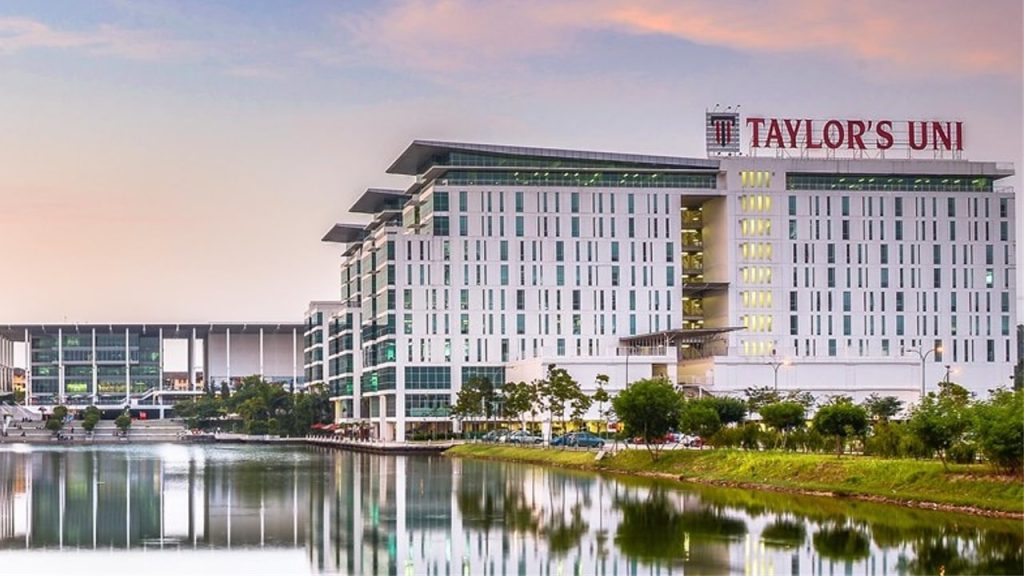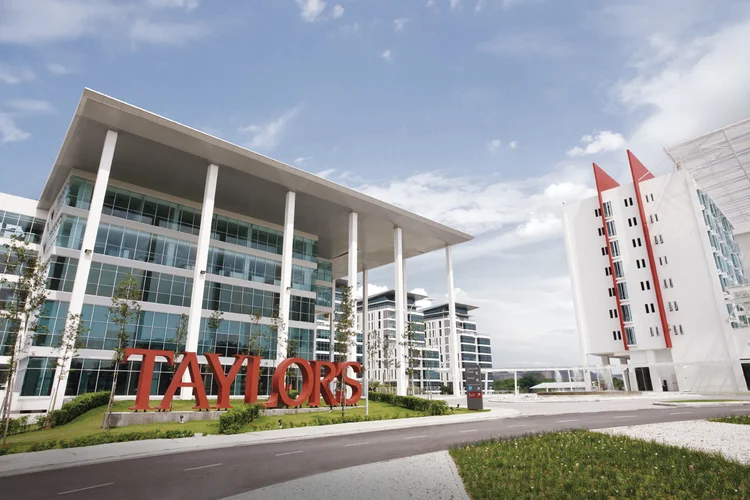OVERVIEW
Our Bachelor of Mechatronics Engineering programme is designed to provide students with a strong foundation in the core principles and concepts of mechatronics, an interdisciplinary field that integrates mechanical, electrical, and computer engineering. Throughout this programme, you will explore the design, development, and control of smart systems and devices that combine mechanical, electronic, and software components. The curriculum is carefully crafted to cover a wide range of topics, including robotics, automation, sensors and actuators, embedded systems, and control engineering. You will learn how to design and implement intelligent systems, working with cutting-edge technologies that shape the future of industries such as manufacturing, automotive, healthcare, and aerospace.
One of the key features of our programme is the emphasis on hands-on learning and industry engagement. You will have the opportunity to participate in practical projects, internships, and collaborative research, allowing you to apply your theoretical knowledge to real-world challenges. This approach ensures that you graduate with the technical expertise and problem-solving skills required to excel in the evolving field of mechatronics.
School
Engineering
Study Options
Full time only
Study Programme
4-year
Intake Month
April and September
Interested to know more? Start your journey with us now.
PROGRAMME OVERVIEW
PROGRAMME STRUCTURE
Our curriculum places a strong emphasis on the practical application of knowledge. Through hands-on laboratory experiments and industry-relevant projects, you will gain valuable experience in applying theoretical concepts to real-world scenarios.
Primary Major
This component consists of Common Core subjects, which are common modules across a discipline that provides the fundamental knowledge of the discipline.
Common Core
Year 1
- Engineering Mathematics and Modelling I
- Engineering Design and Analysis
- Circuits and Signals
- Engineering Mathematics and Modelling II
- Programming Techniques
- Thermofluid Engineering 1
- Digital and Analog Electronics
Year 2
- Engineering Design and Project Management
- Materials and Manufacturing
- Finite Element Method and Simulation
- Electrical Power and Machines
Year 3
- Microprocessors and Computer Architecture
- Engineering Solid Mechanics
- Automatic Control and Instrumentation
- Mechanical Vibration
- Power Electronics and Industrial Drives
- Engineering Dynamics
- Industrial Training
Year 4
- Mechatronics Engineering Group Project I
- Final Year Engineering Project I
- Professional Engineering and Society
- Mechatronics Engineering Group Project II
- Final Year Engineering Project II
Note: All information is subject to change. Readers are responsible for verifying information that pertains to them by contacting the university.
Specialisation
Specialisation 1: Robotics
- Introduction to Robotics
- Robotics Dynamics and Control
- Robotics Sensor and Actuator
Specialisation 2: Artificial Intelligence (AI)
- Digital Imaging Processing
- Machine Learning for Engineers
- Deep Learning for Engineers
University Core
This component aims to develop critical thinking, build up social intelligence and cultivate civic responsibility as well as broaden cultural knowledge. These consist of compulsory and nationally-mandated study modules required by the Malaysian Ministry of Higher Education.
- Penghayatan Etika dan Peradaban / Bahasa Melayu Komunikasi 2
- Falsafah dan Isu Semasa
- Emotional Intelligence in Action
- Kursus Integriti Dan Antirasuah (Integrity And Anti-Corruption)
- Social Innovation Project
Notes:
- Students are requested to take Bahasa Kebangsaan A if they do not obtain a Credit for Bahasa Malaysia in SPM.
- All information is subject to change. Readers are responsible for verifying information that pertains to them by contacting the university.
Flexible Education
The Flexible Education component offers students the flexibility to explore modules in a related or unrelated field, enhancing and complementing their primary major. This component allows students to broaden their knowledge and skills by selecting modules from the same or different schools within the university.
Flexible Education can take various forms, including free electives, extensions, minors, or even a second major. These options provide students with the opportunity to delve deeper into a specific area of interest or broaden their understanding by exploring a different field of study.
Click here to see a full list of all available Flexible Education Components.
You will need to choose one of the package below.
Minor
You will need to select any Minor packages offered by Taylor’s University. We have provided some suggested Minors below, and you can refer to the Flexible Education Guide for the complete list.
- Entrepreneurship
- Project Management
Choose any Minor package* offered by Taylor’s University.
Refer to the Flexible Study Guide for the list of Minor packages
The minor offered are subject to availability and you will need to meet the minimum module pre and co-requisite.
Free Electives
You will need to select any five (5) of the Free Electives offered by Taylor’s University. You can refer to the Flexible Education Guide for the complete list.
The free electives offered are subject to availability and you will need to meet the minimum module pre and co-requisite.
ENTRY REQUIREMENTS
Are you ready to take the next step in your academic journey? Our programme offers an exciting opportunity for individuals passionate about the field of Bachelor of Mechatronics Engineering. To ensure a smooth admission process, please take note of our entry requirements listed below.
Prerequisites
Pass SPM//O-level or equivalent with 5 credits for entry with pre-university /Foundation qualification (Except for UEC).
Note: All information is subject to change. Readers are responsible for verifying information that pertains to them by contacting the university.
Entry Pathway
Pass Foundation in Engineering with min. CGPA 2.00
Foundation in Science (FIS)
Pass Foundation in Science with min CGPA of 2.00 including Mathematics and Physics/Chemistry
Sijil Tinggi Persekolahan Malaysia (STPM)
CC in Mathematics and Physics /Chemistry
Unified Examination Certificate (UEC)
Pass with 5Bs including Mathematics and Physics / Chemistry
A Level
Min. DDD / equivalent of 180 points including Mathematics and Physics / Chemistry
AUSMAT (SACEi)
ATAR 65 including Mathematics (preferably Specialist Mathematics) and Physics / Chemistry
Canadian Pre-University (CPU)
Min. average of 60% in 6 subjects including Advanced Functions, Calculus & Vectors and Physics / Chemistry
International Baccalaureate (IB)
Min. 24 points in 6 subjects including Mathematics and Physics / Chemistry
Monash University Foundation Year (MUFY)
Overall 50% including Physics A&B / Chemistry A&B and Mathematics A&B
Other Qualifications
Ministry of Education Matriculation in related field min. CGPA 2.00 including
OR
Foundation in the Field of Engineering with
min. CGPA 2.00
OR
Diploma in Engineering with min. CGPA2.00
from any institution recognised by the Malaysian Govt.
Application via APEL A is allowed. For more information, visit here.
Notes:
- All information is subject to change. Readers are responsible for verifying information that pertains to them by contacting the university.
English Requirements
Band 4.0
TOEFL
30 – 31 (Internet Based Test)
Cambridge English/ELS also recognised; the minimum score varies by programme
MUET
Band 2
Pre-University programme / Diploma
Completed Pre-University programme / Diploma conducted in English
Note: All information is subject to change. Readers are responsible for verifying information that pertains to them by contacting the university.
FUTURE CAREERS
When you’ve successfully completed this Bachelor of Mechatronics Engineering programme, you could embark on any of these exciting careers, including:
- Automation Engineer
- Automation Systems Designer
- Control System Engineer
- Design Engineer
- Electronics Engineer
- Engineering Academician/Researcher
- Manufacturing Engineer
- Mechanical Engineer
- Mechatronic Engineer
- Mechatronics System Designer
- Product Engineer
- Product Designer
- Production Engineer
- Project Engineer
- Project Manager
- QA/QC Engineer
- Robot Developer
- Robotics Engineer
- Robotics Specialist
- Service/Maintenance Engineer
- Support Engineer














